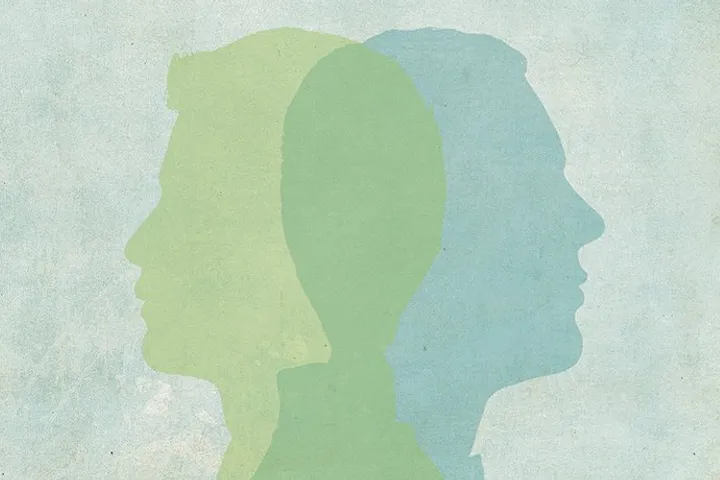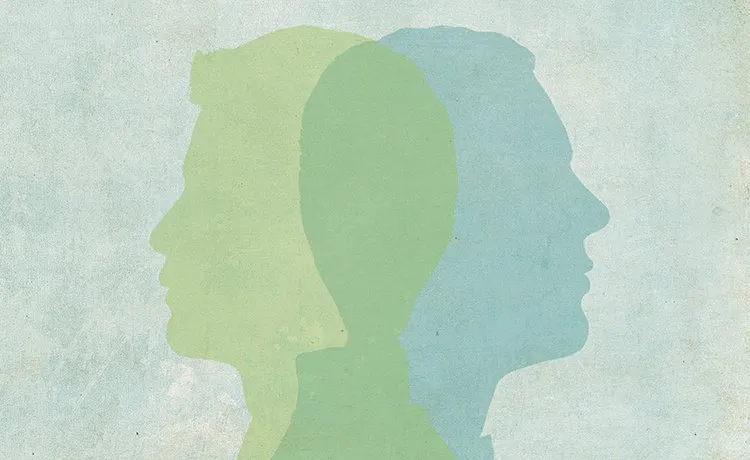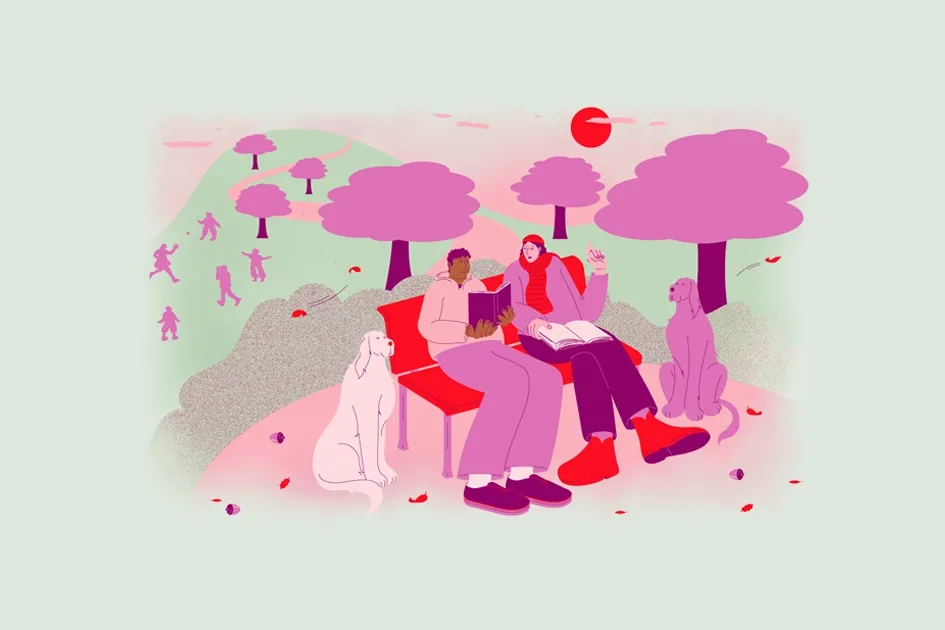We sat around her kitchen table, ready to dive into chicken and rice, but knowing we should pray first. Except we didn’t pray. Our daughter Alana is a Muslim convert, and in her home—seated with her husband and children for a meal—her dad and I bowed to say grace but didn’t say a word.
This is how our divided life began—with a daughter who chose Islam over Christ, leaving in her wake a family division that raised its head at the oddest times. This was our failure, as my husband and I saw it, and it didn’t go down easy. We’d gathered in her Texas home for dinner—that golden hour when loved ones reconnect to break bread after a long day, tell stories, teach wisdom, laugh together, share love on a plate. On cue, a deep dish of chicken and rice was placed before us, prepared with attention and skill by our daughter’s love-to-cook husband.
.jpg) Photography by Iain Bagwell
Photography by Iain Bagwell
Seated at the table with our grandchildren in place, we were grateful to God for the traveling mercies, our family moment, and the meal. Yet when it came time to bless the food, my husband and I balked, trying not to complicate our already difficult situation. But the omission felt wrong. We both sighed, giving each other the look—the one that said we’d caved in again to our family’s new normal, but shouldn’t we be better at dealing with it?
We sat quietly as our son-in-law dished out Texas-sized helpings while my husband and I chose, on that evening, not to thank our Lord. Feeling guilty, we were confused and despondent. Well, I’ll speak for myself. My husband finally dove into his meal and ate heartily. I picked at my food, however, barely tasting anything, trying to see what the Lord was asking of me in our family’s unexpected interfaith life. Should I just act polite? Turn from my daughter and shun her? Invite her back to Christ? Or simply eat her husband’s casserole and say nothing? These are the hard choices that divided families navigate. It’s a path riddled with potholes, hurdles, and obstacles. As one mother wrote in a letter to me: “All my ‘different’ children will be home for Thanksgiving this year, and I cringe.”
Beyond the cringing, many of us who are Christian—but whose families are divided by lifestyle, politics, faith, and more—just feel confused.
Did Jesus really mean it when He asked His hard question: “Do you think I have come to bring peace to the earth? No, I have come to divide people against each other ... Father will be divided against son and son against father; mother against daughter and daughter against mother” (Luke 12:51, Luke 12:53 NLT)?
But my daughter, Lord?
This is the question I want to ask of God. Instead, at my daughter’s table, I say the next best thing: “Pass the broccoli, please.” This is “playing nice,” and it feels like concession, especially when so many vital things—my daughter’s salvation and her family’s—are at stake. Yet in my interfaith family, “arguing” for Christ has led to exactly that: hurtful arguments. I become didactic and demanding, unkind and insulting. So finally I asked the Lord, “What would You have me to do?” His answer at this meal: Pass the broccoli.
Be nice, indeed. And don’t forget to love one another.
But somehow, I keep looking for more.
.jpg)
I obey, however, and watch my daughter fix her plate and sit down at the table. Her children are giving their veggies a run for their money. The oldest girl loves it and gobbles up her portion. Her brother pushes stalks around his plate, asking for more chicken and frowning at the vegetable. The baby giggles. “No!” she says, shaking her head, but finally eats some bits. She looks at me and offers her vegetables, grabbing florets to give away, so I take some pieces from her pudgy hands and eat.
“Grammy!” she says, delighted. “Eating broccoli!” and she laughs some more. So I giggle with her, enjoying our sweet little game.
These are moments of grace in a divided family, and the push to debate theology—or argue faith doctrine or score points for Christ—doesn’t draw my daughter back to Christ. Instead, it pushes her farther away. So I surrender. I show His love.
And this may be the greatest act of faith.
Showing love means I wait on God. I listen to His voice. I read His precious Word. I draw closer to Him. I learn the gestures of kindness. Patience. Hope. Grace. I see, as Martin Luther wrote, that “the call of God comes to each at the common tasks.” In all these ways, then, I remember the most important thing: God is love. Especially in an unconventional family.
At this time of year, with holidays approaching, it’s an important reminder. On this path, I lean on the prophet Isaiah’s ancient and essential promise: “‘Though the mountains be shaken and the hills be removed, yet my unfailing love for you will not be shaken nor my covenant of peace be removed,’ says the Lord, who has compassion on you” (Isa. 54:10 NIV).
I preach that to myself. Then when unkind strangers look askance at my family dynamic, I can declare God still loves. Loves me. And everybody else in my not-quite “normal” family.
Moreover, He understands my dilemma—and the challenge of my struggle. “For we do not have a high priest who cannot sympathize with our weaknesses, but One who has been tempted in all things as we are, yet without sin” (Heb. 4:15). He knows every mistake I made as a parent, the pain I felt when my daughter called from college to say she’d left the church, and the fear I feel now—some 15 years later—for her salvation. Then He reminds me: Perfect love casts out fear (1 John 4:18).
So I’ve stood up before the world to say my response to my Muslim daughter is to love her, even though love in a divided family can be hard. I wasn’t a perfect mother, but now I am choosing at least to love. Isn’t that a decent start? Especially when a family member turns away from Christ?
This is a question I put to God. Am I wrong to love my daughter anyway? Beyond loving, what more should I do? In prayer, I hear the Holy Spirit’s beautiful answer: “Trust Me. The story isn’t over. There’s strength in waiting.” (See Isa. 40:31.) Meanwhile, I am prepared, as the Scriptures say, “to give an account for the hope that is in you, yet with gentleness and reverence” (1 Peter 3:15). And what does that mean? Keep loving.
So after dinner I help my daughter wash up. We scrape plates and stack dishware. I wash. She dries.
The children are bathed and in pajamas, settled down with their daddy to read bedtime stories. My daughter and I talk. About her life. About mine. And about her fear that, as she puts it, “someone will strike out—at me and our family.” The apprehension leaves her traumatized, she says.
“What do you mean?” I ask.
“It makes me feel paranoid. Like people are staring at me. Looking at my hijab.”
My daughter’s voice is a sigh in the small kitchen. In her honest words, I feel the tension of her life. I look for a reply, trying to say the right thing in response. Mostly, however, I stay quiet. Listening. Offering compassion. Or empathy. Or sympathy. Or something that shows I can relate.
As she talks and I listen, I’m reminded that every moment I spend with my daughter is an opportunity to be salt and light. To show the grace and strength of Christ. What does that mean exactly? Among my Christian friends, some think it means pushing Jesus, teaching Jesus, talking Jesus—pounding home the truth of Christ until Alana finally “gets it” and comes running back to His cross. Others think I should be a good mom. That I should love her and trust God.
I’ve settled there—in the love and trust camp. I never imagined that making peace across a divide and reconciling with a position that isn’t biblically ideal can mean depending on the Lord to work it all out. Yet as I lean my hands into warm soapy water, letting the Spirit of God lead me through this evening, I feel no doubt or confusion.
I still pray for my daughter’s salvation. I remember Monica, the mother of Augustine, who prayed 17 years for her wayward son to know the Lord and saw it come to pass in her lifetime. Trust takes work, but the reward can be amazing indeed.
In the meantime? I surrender to the strength of gentle love.
My husband and I do that the next day at the dinner table. Gathered with our daughter and her family in her kitchen again, we take our seats. The food is ready. The moment has come. Alana’s husband directs their children to say an Islamic “grace” in Arabic, using words I can’t pronounce and don’t understand.
But I also choose. That’s what Jesus meant about dividing people. Following Him, we decide for Him. So I whisper His name. Jesus. And the roof doesn’t cave in. “Bless this food, O Lord, that we are about to receive. In Jesus’ name I pray.” My daughter looks up for a moment, saying nothing, moving to help her children with their meal. But my husband, with fork in hand, adds one holy word—“Amen.”
He and I look at each other and smile, knowing we’ve taken a good first step. We’ve opened a door, and God will open more. Then with hope that love will conquer all, we bow our heads and eat. My food tastes good. It’s seasoned with love. May God do the rest in His time.





